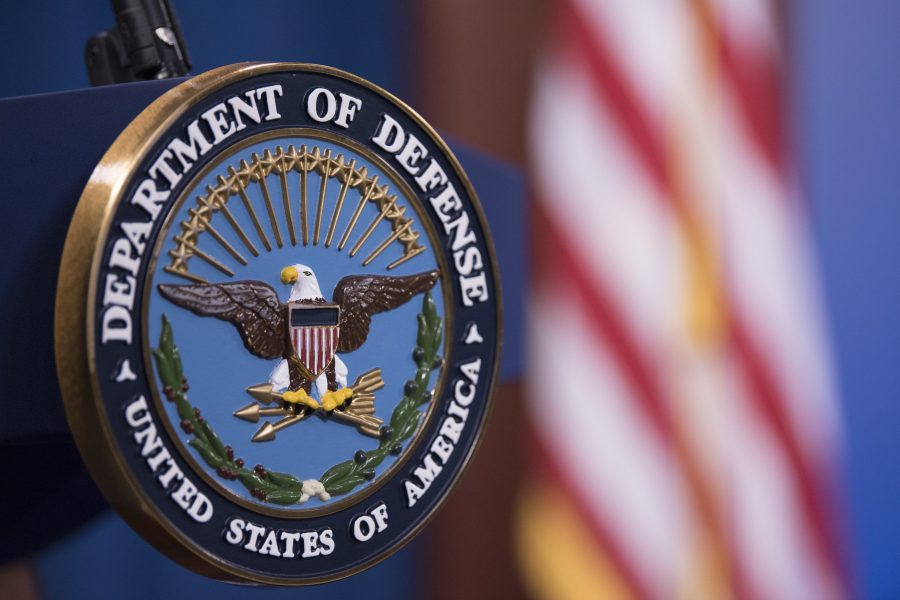The Defense Department on March 25 raised its Health Protection Condition level at every military installation globally to the second highest level as the new coronavirus outbreak spreads and more personnel test positive for the COVID-19 virus.
The Pentagon on March 25 also ordered all U.S. troops abroad to freeze movements for 60 days, meaning those currently deployed or at home preparing to deploy will stay in their current positions for the duration of the order. The order, issued in addition to the travel restrictions already in place, will impact about 90,000 scheduled deployments, according to CNN. Previously, service members deploying would be quarantined but the new order halts those deployments.
The military’s health warning level—Health Protection Condition Charlie—means the virus has sustained community transition with a substantial morbidity threat. The designation means personnel should expect the cancellation of in-person gatherings, the limited access of supplies and services, and even more remote work. The move comes after individual bases and the entire U.S. Army raised their alert to this level. The highest condition level—Delta—would signify a high threat of mortality and widespread community transmission.

The total number of COVID-19 positive cases across Active duty, dependents, civilians, and contractors jumped by 94 on March 25 from the previous day to a total of 435, including both current and recovered. Within the Air Force, there are 97 total cases.
The military’s assistance has moved forward, with the Navy hospital ship the USNS Mercy now expected to dock in Los Angeles on March 27 and USNS Comfort heading to New York City after that. Additionally, military field hospitals are being deployed to New York City and Seattle.
While the new health protection level calls for more restrictions, the Pentagon is refraining from ordering the cancellation of all large gatherings, such as all-call meetings and ceremonies, instead giving commanders the discretion to decide what’s best. The military has a “balancing act” to protect the health of its service members with the responsibility of the mission, Joint Staff Surgeon Brig. Gen. Paul Friedrichs said during a March 25 briefing.
The military can’t predict how long the outbreak and its related force protection measures will last based on current data and modeling. In the immediate future, however, the Pentagon expects the growth in cases to continue over the next few weeks, so personnel need to focus on what steps they can take to help, Friedrichs said.
“Worry about today,” he said. “What we can do is focus on what we individually and collectively can do today.”
If that’s successful, maybe Pentagon and U.S. leaders could talk in three to four weeks about what positive steps had been taken and their impacts in slowing the rate of infection, he said.
“What matters is what we’re doing right now to mitigate this outbreak,” he said.
